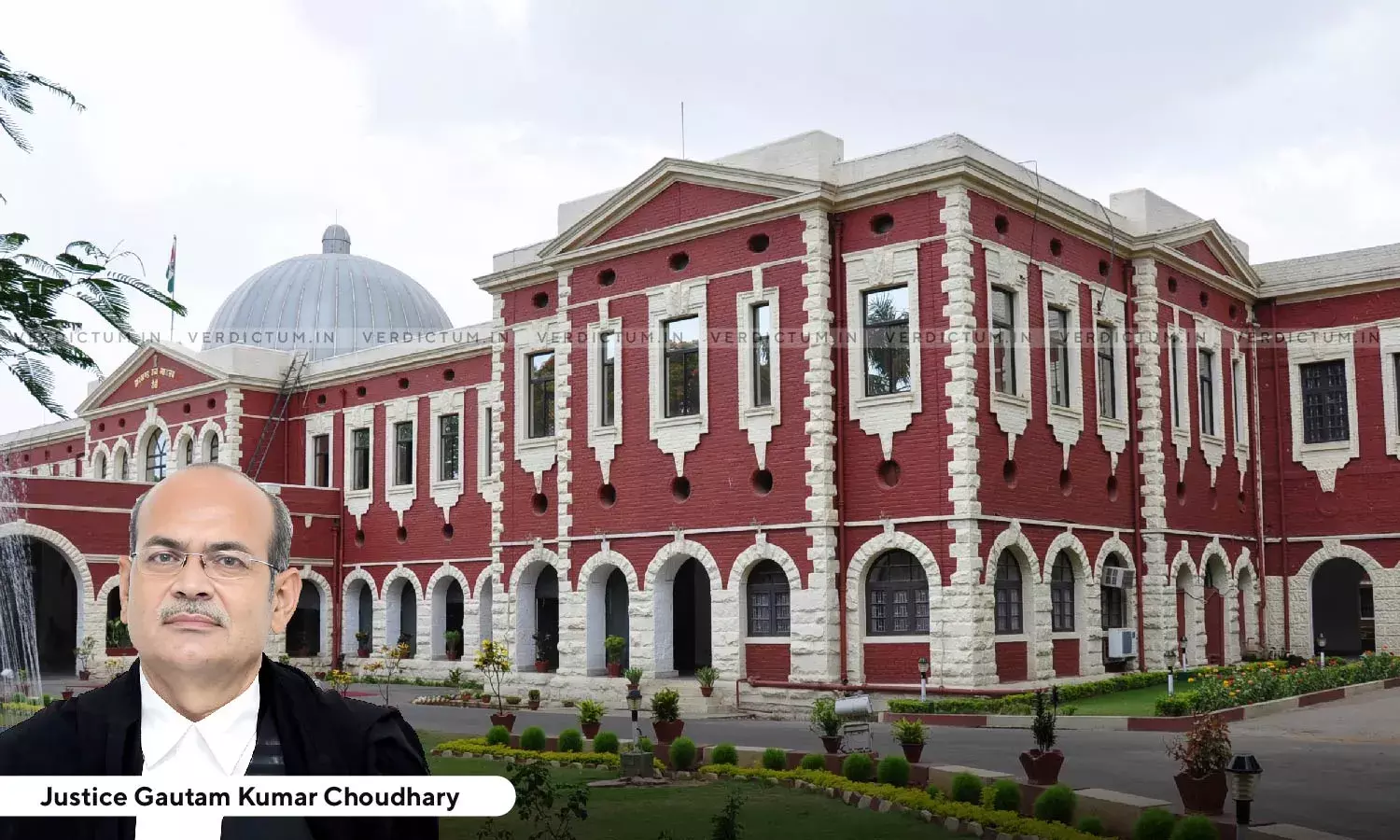Can’t Infer That Testatrix Was Not In Sound Health & Disposing State Of Mind At Time Of Execution Of Will Merely Because She Died Within One Month After Such Execution: Jharkhand High Court
The Appeal before the Jharkhand High Court was filed against the order of the District Judge by which a probate application had been dismissed.

Justice Gautam Kumar Choudhary, Jharkhand High Court
The Jharkanad High Court has held that merely because the Testatrix died within a month after the execution of the WILL, the same is not sufficient to infer that she was not in sound health and disposing state of mind at the time of execution of the WILL.
The Appeal before the Jharkhand High Court was filed against the order passed in a Probate Case by the District Judge under Section 276 of the Indian Succession Act, by which the probate application had been dismissed.
The Single Bench of Justice Gautam Kumar Choudhary held, “ Deposition of witnesses that the Testatrix was ill since last six months, and was not in a position to stir out of her home, is not supported by any documentary evidence of her treatment. Such a document could have been produced, particularly when the objectors/respondents claim that she was under their care and was being looked after by them. Merely because the Testatrix died within a month after the execution of the WILL is by itself not sufficient to infer that, she was not in sound health and disposing state of mind at the time of execution of the WILL.”
Advocate Bhaiya V. Kumar represented the Appellant while Advocate Jasvindar Kaur Mazumdar represented the Respondent.
Factual Background
As per the case of the Appellant/Applicant, Srimatiya Radha Debya @ Kusum Debya, daughter of Late Shashi Bhusan Goswami, and Wife of Late Basanta Goswami, executed her last WILL in 2004 in favour of the Appellant. After executing the said registered WILL, she died. The suit property was recorded in the name of Joginda Goswami and Haripado Goswami and the testatrix happened to be the paternal grand daughter of Joginda Goswami, whereas the respondents are the heirs and descendants of Haripado Goswami. Testatrix Srimatiya Radha Debya @ Kusum Debya had purchased the said suit land vide a registered sale deed. The execution of the WILL was witnessed by Tarapado Gorai (P.W.-2), Sripati Goari (P.W.-3) and Raju Goswami.
The Grant of probate was contested by defendant Lakhi Narain Goswami (since dead) who filed show cause before the Probate Court on the ground that testatrix Radha Debya @ Kusum Debya had not executed WILL in favour of the applicant, as she was ill since last few months before her death and was not mentally and physically fit when she died.
Reasoning
The Bench, at the outset, mentioned that the probate court is not competent to determine the title of the property bequeathed. The jurisdiction of a probate court is limited to determining that the WILL executed by the testator was his last WILL. Whether he/she had the right to execute the WILL with respect to the property is beyond consideration in a probate application.
“ Therefore, if the description of the land sought to be bequeathed has not been detailed in the WILL, and the testamentary disposition is with respect to the entire property of the Testatrix, probate application cannot be denied on this score. It makes no difference what are the properties which have been set out in the probate application, as probate is granted with respect to the property as stated in the WILL and not with respect to the description given in the probate application”, it said.
Referring to the judgment in Jaswant Kaur v. Amrit Kaur (1977), the Bench said, “The onus of proving WILL is on the propounder and in the absence of suspicious circumstances surrounding the execution of the WILL on proof of testamentary capacity and signature of the testator as required by law, is sufficient to discharge the onus. Where, however there are suspicious circumstances, the onus would be on the propounder to explain them to the satisfaction of the court before the WILL could be accepted as genuine. The presence of suspicious circumstances makes the initial onus heavier and the propounder must remove all legitimate suspicion before the document can be accepted as the last WILL of the testator.”
Coming to the facts of the case, the Bench noted that the attesting witnesses PW-2 and PW-3 had proved its due execution. There was no evidence to suggest that any fraud was played in its execution.It was also noticed that unless there is some material to suggest that the witnesses were ill disposed and were out there to gain something by deposing in a particular manner against the respondents, their evidence couldn’t be discarded. “In any case mere absence of detailed description of property in the WILL cannot be regarded as a suspicious circumstance”, it held. The two witnesses had also deposed that the Testatrix had a meeting with them about 10-15 days before the execution of the WILL, where she had expressed her intention to execute the WILL in favour of Sita Ram Goswami. Thus, it couldn’t be said that due execution of the WILL was vitiated on account of any active part played by the beneficiary.
As per the Bench, the Probate Court erred in refusing to grant probate. Allowing the application for grant of probate which was converted into a suit, the Bench ordered, “Let the probate be granted to the plaintiffs-executors, in respect of the WILL executed and registered on 03.09.2004 by Srimatiya Radha Debya @ Kusum Debya (since deceased) with a copy of the WILL annexed, in accordance with the law and upon payment of requisite court fees.”
Cause Title: Sitaram Goswami v. Shanti Devi & Ors. (Neutral Citation: 2025:JHHC:11359)
Appearance:
Appellant: Advocate Bhaiya V. Kumar
Respondents: Advocates Jasvindar Kaur Mazumdar, Niharika Mazumdar

